Dialogue with Chen Lin: Cultural "Breakers", Attempts and Looking Back at Breaking Through the Separation Between China and the West | Around the Furnace·NYUSH
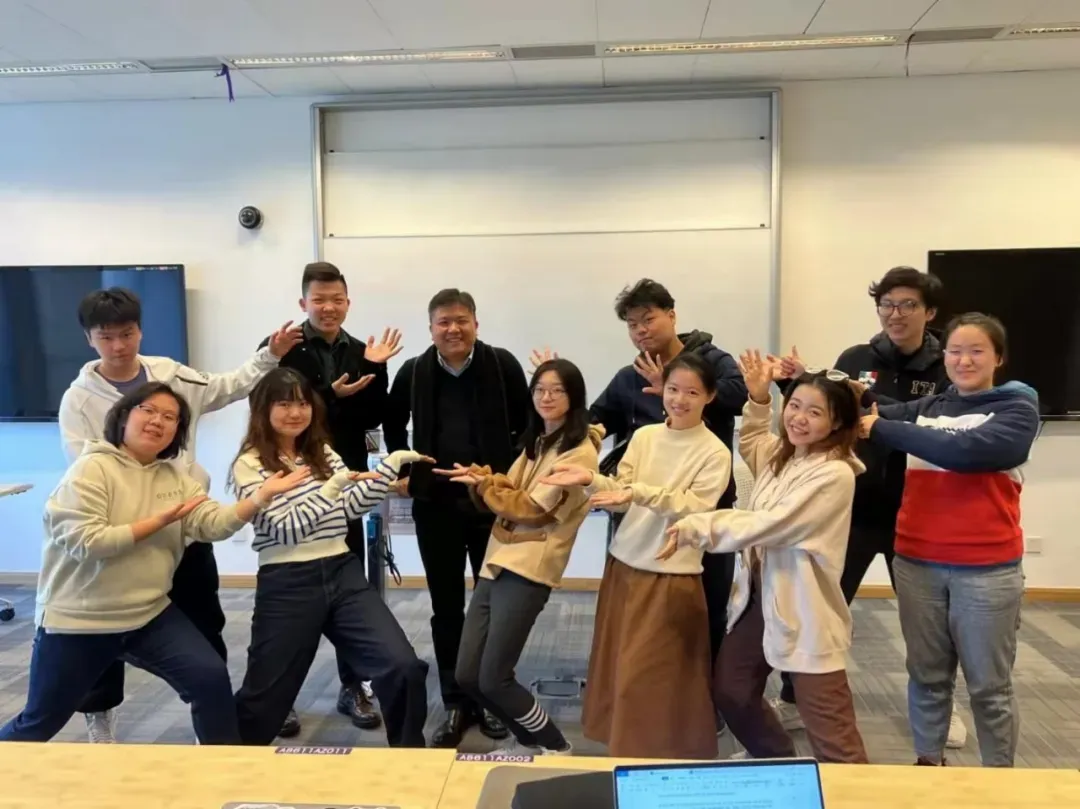

After the arrival of the epidemic era, the wave of globalization has declined, and we are also worried that cross-cultural communication will become more and more difficult. It is undeniable that there are always certain barriers between different cultures, but there is never a shortage of people who want to break the barriers. Teacher Chen Lin is such a cultural "breaker". After graduating from Fudan University, majoring in foreign languages and literature, he stayed in the United States for ten years, focusing on the study of comparative literature, and successively obtained a master's degree from the University of California, Riverside and a doctorate degree from the University of Washington. However, his thinking interests are not limited to the British Romanticism and Chinese classical literature he studied during his doctoral period, from the beginning of his undergraduate study of literature to the completion of his doctoral dissertation "Tao Yuanming and Wordsworth: A Parallel Study" (Tao Yuanming and William Wordsworth: A Parallel Study), he has been thinking about the similarities and differences between Chinese and Western cultural spirits. Today, as a senior lecturer in the writing course of the Department of Arts and Sciences at NYU Shanghai, he devotes himself to teaching and is committed to improving students' rational thinking and cultural awareness, hoping to help them find the spiritual coordinates of the new era in this complex and ever-changing world.

Furnace|You Yiting Shi Yuxin Su Zijin Yin Kaiwen Xu Wenzhe
Chen | Chen Lin
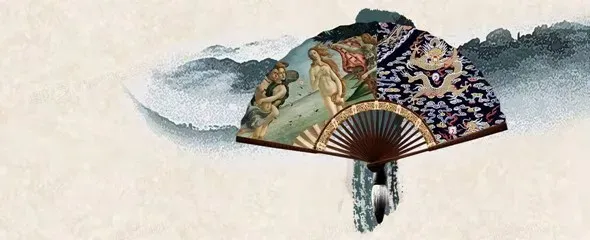
1
From language to literature and thought
Furnace | What kind of opportunities exposed you to literature? And under what circumstances did you realize your love for literature, choose literature as a major, and then make it a career?
Chen | It was when I was in college that I gradually realized that I liked literature. I actually liked English at first, because my English is good, but I misread English when I filled out the application for the college entrance examination. At that time, most foreign language departments in China mainly focused on language teaching. Because of some of the foundations of literature education, Fudan paid more attention to literature in professional teaching. I was fortunate enough to be exposed to some literature classes in my senior year of college, and I really liked literature only after reading some English literature works sporadically. From the point of view of the Chinese people, this way of connecting with literature is actually not very "normal", because I came to like Chinese literature through English literature, and it has a taste of "export to domestic sales". It now seems that this external-in-linkage change is marking the budding of my sense of cultural identity.
At that time, when I read Shakespeare and many English works, I could always feel the beauty of the language, but it was so difficult to convey that beauty in Chinese through translation. At that time, I felt that it was necessary to draw nourishment from classical literature, so I began to read "Li Sao" , Pre-Qin prose, Tang and Song poetry, etc., all of a sudden. This tortuous road made me realize the shortcomings of Chinese language education. I believe that the current language education has been improved, and the teaching of classical Chinese seems to be strengthened, but the tendency of taking exams is still, and there is a tendency to intensify. An obvious consequence is that there are still not many people who like Chinese. Chinese education is the core of traditional education. Students have invested a lot of time and energy, but few really like it. This has to make people reflect. Even when liberal arts students were chosen, those liberal arts students tended to be stereotyped as more rote memorizers and were rarely assessed as "very thoughtful." This is the drawback of our current cultural education, which deserves deep reflection.
Furnace | Do you think that the key to cultural education is language?
Chen | No, language is the medium of expression, and the ladder of cultural practice. Nowadays, ordinary people use Chinese to write too casually, and often lack basic consciousness and sensitivity. What I call sensitivity is not to say that composition must have literary grace, but to recognize the connection between language and thought and emotion. Insensitivity to language limits not only what we can express, but also the thoughts and emotions we have to express. In this regard, writing in English is the same as Chinese. To be clear and realistic, we must first cultivate sensitivity and self-consciousness to language. For this, our college students still need to make a lot of efforts.
Furnace | What is the difference between the language you speak as a tool for expressing ideas and the language we use every day?
Chen | Thinkers often have a deep understanding of language, because what they want to express is very fine, dense, and complicated, and it is difficult for them to express their thoughts accurately and fully in daily expressions. Fan transformation. Philosophers often have their own set of terminology, which is the result of their constant struggle with words to express their thoughts accurately. In the same way, the language of art or literature is a tool used by writers to convey their special experiences and concerns, and it is not something that ordinary language can handle. Only when you can appreciate this layer can you have an understanding of the advanced uses of the language.
Of course, for students to reach this state when using language, it has already surpassed the requirements of ordinary writing courses, because it requires a high degree of understanding and long-term training. If modern humanistic education can bring students to this realm, it will probably achieve its true purpose.
2
What is education
Furnace|You have also studied at the postgraduate level for ten years. Combined with your study at that time and your feelings and thinking about teaching in recent years, how do you view the relationship between "teaching" and "learning"?
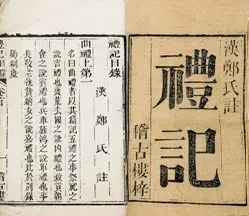
Chen | "Book of Rites Xue Ji" once put forward that "teaching grows with each other", which is a famous saying about the relationship between teaching and learning in ancient China. Everyone has heard it, but probably not many can understand it and actually do it. How much of our education is teaching and learning? Can teachers promote learning through education? Can students realize that "teaching"—that is, a certain degree of output and reverberation—is a necessary incentive for their own "learning"? Take the NYU Shanghai class as an example, the participation of Chinese students in class discussions is often much lower than that of foreign students. It is true that there are no active students, but there are always more passive ones, waiting for teachers to instruct them. This one-to-many model is actually not conducive to achieving teaching results. I think this aspect can be appropriately learned from the practice of American schools. On the premise that teachers do not give up intervention and guidance, students can be given more space to play actively.
Taking my own experience as an example, the time when I consciously grew up was when I started to be a teacher, not when I was a student. Being a student is always a passive, at least semi-passive state. When I am a teacher, my role is different. You have to have something to say, and you have to speak clearly, so that people can understand and gain something. This sense of responsibility as a teacher motivates me to study more seriously, think more seriously, and at the same time. But also to give students a beneficial response, these are the benefits of teaching for learning.
For students, in order to receive the effect of teaching and learning, they must first complete the transformation of a concept, they must have a sense of initiative, they must learn by themselves; they must have a sense of participation, not only to listen in class, but also to listen to this The object of He's talk is both teachers and classmates. The classroom is a place to learn from each other and improve together. Of course, this kind of participation also has prerequisites, that is, careful preparation, respect for colleagues and a certain amount of self-confidence. This is a teaching culture, and its realization requires our conscious participation and co-shaping.
Furnace | What do you think is the real purpose of education?
Chen | The real purpose of modern school education is whether it can transform your concepts and thoughts, thus transforming you as a person. "Enlightenment" is a sign of transformation. Confidence and life goals are established through this transformation. It is only through true education that you know who you are, that you can have goals and strive for them. Success in the mundane sense may be for others to see, but what do you really want? How do you shape your life and your environment? This was originally emphasized by ancient Chinese education.
Modern education is not the same as before. Now students are passively educated in schools, as if they are following a program, in which students are constantly being assessed. But education itself is not such a thing. Can you imagine Confucius assessing his students one by one and giving them grades and rankings? I sometimes think that in China, a country with a particularly developed examination culture, why did not think of using accurate scores to measure candidates before, is it because the ancients were less intelligent? I always feel that exams have nothing to do with education, because exams are an elimination mechanism. In the current system, it seems that only those who can continue on the educational journey can be linked to success, and those who are screened out are losers, so exams and scores are so important, and the purpose of education is alienated High score in the entrance exam.
Furnace | Under such a change in the modern education pipeline, what supports you to stick to the road of education?
Chen | Can't talk about persistence. An objective reality that I face in education is that my learning experience determines that I cannot do many practical things, but there are also subjective reasons. For example, I prefer to deal with people, especially young people, seeing them I am very happy with the progress. On the other hand, the environment is shaped by people, and I hope to make the educational environment better, but my abilities are limited. If the students are very active, I will have more sense of responsibility for myself; but if everyone has a very utilitarian attitude - anyway, I will take a credit, and then I will break up - then the education will not happen, just go through the motions That's it.
This is probably the current predicament of education. In the West, the pressure is placed on the teacher, the student is the center, and the teacher becomes a servant. In the old tradition of China, the teacher was originally an authority, but now it gradually loses this dignity, and the social status is changing. The lower it is, so teachers and students are uneasy about their jobs. Teachers can't concentrate on teaching, but care about those external assessments and places. In this way, it is difficult for education to achieve its true purpose.
At the same time, I do not think that reforming the teaching system will solve the problem. Thinking from the perspective of the system, we can see a lot of problems, but it would be naive to rely on system reform to solve all problems. Without the recognition and enthusiasm of teachers and students, a good system can only be reduced to external regulations. I thought that only when the ideal of teaching was planted in the hearts of teachers and students, real education would happen.
Furnace | What do you think contemporary universities should be able to adjust to make true education more likely, but what is missing now?
Chen | If we don't consider the issue of system reform, and just think about the problem in the current education system, what can we do? I think the answer must be diverse, so I'll throw some ideas out there. Since one of the problems facing education today is that students place too much emphasis on grades, can we imagine creating an environment for students to properly forget grades? I think one way is to try to count as few points as possible. Take the essay writing class I took as an example. If the usual composition is not graded by quantitative channels, but is assessed qualitatively, or the grades given cannot be simply converted into ABCD, the situation may change. This is also true. is what I am trying to do. Our current approach is sometimes a bit self-conflicting, not wanting students to place too much emphasis on grades, and on the other hand scoring almost any course task or behavior. Scores are originally an expedient measure to achieve educational goals. Everyone regards means as ends, and gradually forgets what education is for. So I think taking grades as an example, try to give as few grades as possible, let students participate more, turn the class into a mentally pleasing thing, and finally turn it into a good grade, which may be what everyone wants.
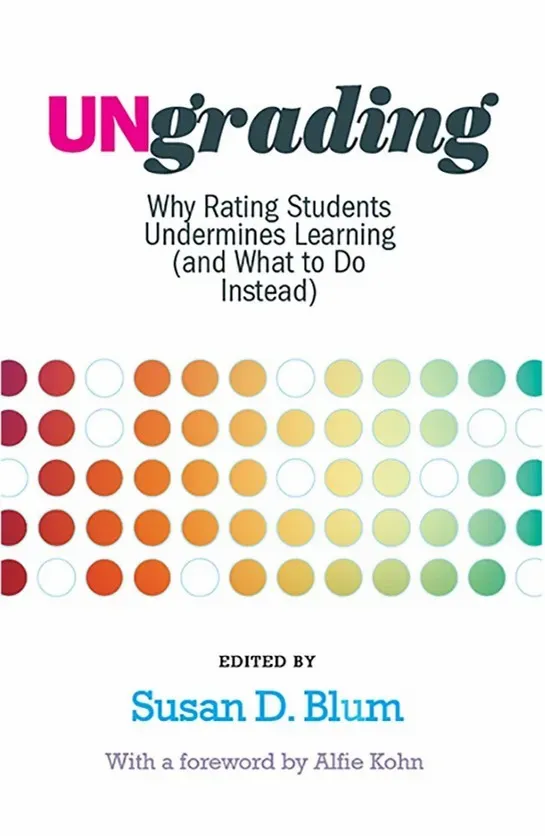
3
How we understand literature
Furnace | Knowing people and talking about the world is a relatively common channel for us to interpret literature. Some people think that the times make literary works, while others think that literary works shape and change the times. What do you think of the relationship between literature and its corresponding era in the historical itinerary?
Chen | This is a very complicated issue. Chinese readers generally do not distinguish between eras, authors and works. The work reflects the author and the time, and the author and the time make the work. When interpreting a work, we habitually start from the background of the times and the author's life to frame its meaning. It seems that the former is clarified, and the interpretation of the latter is logical. This is the cultural psychology and thinking habits created by our unified national structure. Although there is no need to be wrong, the disadvantage is that the relationship between the two is too direct and simple. However, we know that the works of the same writer of the same era are also varied, and you cannot explain that variety, so this kind of overt or dark age author determinism fundamentally underestimates the author's initiative and the richness of the works. But we can't completely deny the relationship between the two. The answer to the question should be in this kind of ambiguity. For readers who are accustomed to Chinese-style reading, they should be especially careful to skip the work to see the context. After all, the work is the foundation and focus of our understanding. The establishment of the context cannot be separated from the understanding of the work itself. The interaction between the two can be said to constitute a Group interpreting loops.
Furnace|Do you think literature needs to take on the responsibility of recording the times?
Chen | There is definitely a relationship between the works and the times. In a sense, it is impossible for the author to escape the era completely. You must be recording this era because you live in it. Even if you write historical novels or science fiction novels, it is impossible to completely strip away the imprint of the era you are in. You can see that "Romance of the Three Kingdoms" is about the events of the Three Kingdoms period, but it also reflects many problems in the late Yuan and early Ming Dynasty; for example, "Water Margin" is about the events of the Song Dynasty, which actually reflects a lot of the reality of the Ming Dynasty. You can't completely cut off from the era you are in, so in this sense, the written record must be related to the era.
If your so-called "recording the era" is deliberate, it is the creative tradition of realism or realism, not the utopian or romantic I just mentioned, which seems to be a departure from the times. The relationship between realist writing and recording is more obvious and closer, but it is difficult to say that the author's purpose is to record, because literature always has a certain degree of freedom, a certain degree of fiction and idealization. It is not a simple record, it is a kind of create. Creation itself relies on human intuition to a certain extent, and is not completely controllable by reason, so it is difficult to condense it into a kind of dogma. If it is written for a clear purpose, it may have violated the basic laws of pure literary creation. Good literature has no thesis (the central theme), but is ambiguous and rich. It has a lot of room for interpretation, and it is a creative restoration of reality, not a camera to take pictures of the world as it is. Of course, even photography implies the photographer's perspective, conveying his feelings and care, especially good literature.
Furnace | Although some so-called famous novels are highly literary, their readability is not high for Fox. Do you think literary and storytelling are in conflict with each other?
Chen | First of all, I want to question this question. For this question to be established, two preconditions are presupposed: first, we know what you call literariness; secondly, this literariness is opposed to the conflict of storytelling. In fact, these two premise assumptions do not hold, or are not clear. I made some general judgments about what literature is before, but in fact, that was also a rough statement, and I did not make an academic distinction. But even if we consider that argument to be sufficient for the time being, the second premise may not hold. Are literature and stories really in conflict? Knowing that one of the main types of literature is narrative, which is story-centered, why do we think the two are in conflict?
If I want to use the movie analogy, what you are asking is probably the difference between a commercial blockbuster with a strong story and a niche literary film. But why can't literary films tell stories? It can be seen that this kind of art is relative to commercial entertainment. Without this kind of climaxing commercial blockbuster, there will be no art production against the blockbuster model. The two are interdependent, a peculiar opposition formed in the cultural environment of our time, rather than the opposition between "literature" and "story" itself. Well, you said that the readability of famous works is not high, and this premise is also invalid. The reason why we have such a realization may be that our tastes have been eroded by commercial culture, and the art and literature of our age have been in an awkward position because of the resistance to this erosion.
4
"Moods" in Different Cultures
Furnace | When we talk about ancient Chinese works, we often say that words are full and meaning is endless, so do works in other cultures also talk about artistic conception? Is the experience of artistic conception related to each person's ideas and cultural background?
Chen | The word "artistic conception" is quite difficult to translate, and most of the difficult translations have cultural characteristics. Relative to "mood", a similar concept in English is probably "world". Kant's use of "spirit" and "aesthetic concept" to talk about the richness of literature has something in common with "infinity of meaning" to some extent. I think that Heidegger's language is a "house of being", which is somewhat similar to artistic conception. Interestingly, these concepts are irrelevant according to the dictionary interpretation. To establish this correlation, you must first get soaked in different cultures, both from his perspective and from my perspective. Looking at the problem from the perspective of oneself, and then discovering the similarity, it is impossible to build such a bridge.
Language is not just symbols that describe the objective world. Many contents in culture have no specific orientation to the objective world, but a conceptual construction. The mission of translation is to bridge the gap between different cultures. If the differences between the two languages and cultures are large enough, translation will be extremely difficult. We often mistakenly think that translation is synonymous substitution. When learning other languages, memorizing words and using dictionaries reinforces this understanding. It seems that there is a simple correspondence between different languages. In fact, this is illusory, or at least unreliable. Of course, this kind of obstacle is not insurmountable. You live in that unfamiliar language and culture for a period of time, use more and think more, and you will gradually understand it.
Therefore, the word "artistic conception", I think there should be something similar in Western cultural concepts, but it is not as strong as it is in Chinese culture. Why do our poems highlight "infinite meaning"? This is closely related to the refined and subtle features of Chinese, and it is no accident that our poetic culture is so developed. Artistic conception can be said to be a special artistic ideal pursued by Chinese poetry and even literary culture. In the West, even if there is a concept similar to artistic conception, it is still in a relatively late and marginal position in the creation and evaluation of poetry.
Furnace|Can you think of any specific works from other cultures that also create a sense of artistic conception?
Chen | Then I think great literature has artistic conception, such as "Hamlet", which will constantly provide you with room for interpretation, which is a kind of "infinity of meaning". We cannot simply determine the meaning of great works, but we can constantly dig out new connotations. It's just that it may not be achieved through that poetic form, but through other literary styles, such as plays and novels. It can be called artistic conception if it can make people think about it. It can be seen that the differences in language and culture are not absolute, but can be opened up to a certain extent.
5
Parallelism of Chinese and Western Literature
Furnace | We found the topic of your doctoral dissertation interesting, titled Tao Yuanming and William Wordsworth: A Parallel Study, and we were curious how you would have identified such a Theme?
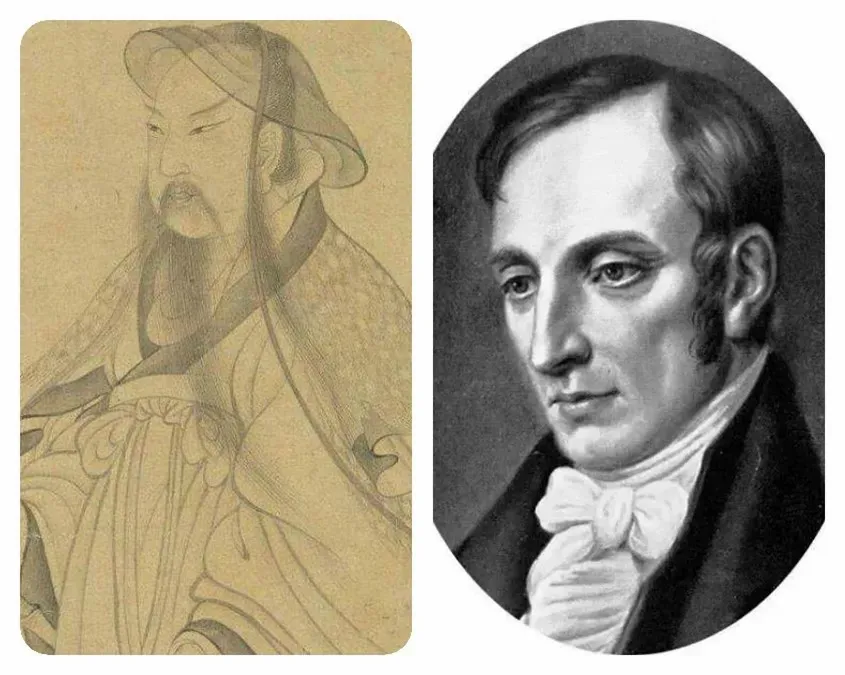
Chen | This is a long story, I can only stop here. My fundamental purpose is still to understand. This concept has a profound Chinese cultural foundation, and I am also influenced by Mr. Qian Zhongshu to a certain extent. However, learning Chinese and Western is easier said than done. I have little talent and knowledge, I read too little, and I started late. The more I learn, the more I feel that I am ignorant and limited. Therefore, in the face of Chinese and Western literary traditions, it is impossible to understand everything, and it is impossible to force it to understand. For the sake of safety, I decided to focus on the two great poets instead of making general comparisons. That kind of approach is contrary to academic research. manner.
I admire both poets very much. When I was in college, I loved ancient Chinese poetry. When I was a graduate student, I worked hard to read Western poetry because of my love of Chinese poetry. I was lucky to choose Wordsworth, because he gave me the greatest The soul-shattering English poets, except Milton, are Wordsworth.
As for the thesis, I can't say that there are any brilliant opinions, just a little breakthrough in the method. The so-called parallel in the title of the thesis means that they should not be pinched together, they should be parallel but not intersecting. , each maintaining its own independence and inner integrity, but at the same time being inspired by mutual reference, this relationship is very delicate. But for me, the thesis is just the beginning, an unfinished thinking, mature ideas are still brewing, and I look forward to getting your response when it comes out in the future.
Furnace|Does your thinking about cross-culturalism between China and the West also inspire you to choose Chinese classical literature as the reading material in the compulsory English academic writing course of a Sino-foreign cooperative university like Shanghai New York?
Chen | For me, the first step in enlightenment is to rethink what you are accustomed to. I am not giving you new knowledge, but to make you realize that the original common sense is actually problematic and should be rethought. Just like a cutting-edge scientist has to rethink the known laws, because those laws are not necessarily conclusions to him, but may also be problems. Only then can you become an explorer, not a simple recipient of knowledge.
On the one hand, the materials used in English classes in Chinese are of course taking into account the cultural identity of the students. We want to help Chinese students build cultural awareness through the discussion of the materials. If there are foreign students, it can also promote cultural exchanges. Of course, there are also academic considerations. NYU Shanghai uses English as the language of instruction. In this international environment, it is easy for us to unconsciously partially accept Western concepts and discourses, leaving us in a state of cultural unconsciousness. Adding elements of heterogeneous civilizations to teaching can help us find problems and gain real understanding and enlightenment.
Furnace|In the environment of English teaching in Shanghai New York, do you have any challenges and difficulties in adding works of Chinese classical literature into the curriculum system?
Chen | The biggest challenge is of course language and cultural differences. In an American-style educational environment, English teaching is justified, but language and culture are linked—if only one language can be used, the richness of culture is also limited. To a certain extent, cultural diversity is reflected in language diversity, so the cultural diversity we advocate under one language can only be superficial. Chinese students in our school can speak at least two languages. Foreign students are required to study Chinese. In theory, they should be able to use Chinese proficiently. In fact, they may not. It really shows in teaching. For Chinese and foreign students, understanding other cultures through one language has huge limitations, especially non-Western cultures like China.
6
The contemporary marginalization of the humanities
Furnace | Before you engaged in literature, were there any voices of doubt and opposition from your family or friends around you? What do you think about the impact of employment prospects and other practical factors on college students' choice of majors?
Chen | We were different then and you are now. In the previous environment, English majors were not afraid of not having a job. At that time, there were relatively few people specializing in English. Of course, professional English learners were better than non-professionals. They could do translation and other work, and the elders would not worry that you could not find a job, so there would be less trouble.
But now the situation is different, now the pressure is greater and the competition is more intense. In fact, this intensity is also created by your joint participation, and it is difficult to reverse it. Now that your education expenditure is so large, those majors that can be linked to career, future, and success will naturally be flocked to. Popular majors have grown in size, while many basic disciplines have become too few and are slowly being marginalized. The humanities bear the brunt, and in the West, the phenomenon that basic natural sciences are neglected has become more and more obvious. From the country and society as a whole, such consequences are worrying.
Furnace | What do you think of liberal arts education when there is a huge disparity in professional popularity?
Chen | I think any discipline, any pure knowledge can be the goal of pursuit. A person who is truly interested in wisdom, knowledge, and truth is not limited to his own field. Of course, a person always has his own coordinates, a starting point and a foothold; but one cannot just look at a certain field that he is familiar with and ignore others; he should have basic common sense of different disciplines, because human beings are a universal The presence.
In fact, I don't think that the arts and sciences are divided into two parts, completely incomprehensible. A student who had a writing class in the past told me that my teacher was not good at writing because I was a science student. This happened more than once. My answer is simple, don't be fooled by delusions. Many thinkers in the West are mathematicians, so why is a scientific mind unsuitable for writing papers? Is humanistic thinking irrational and not logical? I always feel that there is no conflict between the arts and sciences. For college students, it is instructive to look at other things. On the premise of not losing yourself and finding your own coordinates, you must have a certain width, otherwise it will easily become very narrow. Over-specialized education can easily make people narrow-minded, so many top universities in China are now learning from the United States and promoting liberal arts education. This is right, but the difficulty lies in how to make this education truly realize its value.
Furnace | Finally, we would like to ask if you have any recommended books for us?
Chen | This is the hardest problem of all because there is no scope and no goal. In our age of information and knowledge explosion, it seems difficult to establish the classic humanities books that are commonly respected. There were classics in ancient China, but they were demolished in modern times, and the same is true in the West. In the middle of the last century, the Great Books course in British and American colleges once became the focus of liberal arts education. It once became a hot topic in the academy, but now it seems that the popularity has passed, and the general trend of specialization may continue unabated.
I am more conservative, and the debate in the college is left to the college. For ordinary college students, we should not abandon the classics of the humanities. Of course, Chinese ideology and culture are indispensable to the pre-Qin Zhuzi, Sima Qian, Qu Tao Li Du, and the four famous works. The Western classics are more complex, and the philosophical literature is also full of sweat. Try to understand, you can start with Homer, Plato, Aristotle, the Bible, Dante, Shakespeare, Goethe, Kant, Marx, Tolstoy... Try to read the original texts or excellent translations. If you have difficulty understanding, you can refer to supplementary readings.
Reading more humanities books is not to make today's college students forget the present and not care about their own situation; on the contrary, reading selectively and learning to read is to expand their minds and visions, so as to better understand the time and space we live in surroundings. As for the steps and choices of reading, everyone can start from one subject and specialize in one area according to their own interests, and the final goal is to master it. Smart and Moderate." The ancients did not have as much knowledge as today's people, but the ideals they raised were great. "Although we can't reach it, our hearts yearn for it", which is probably not bad.

Text|You Yiting, Shi Yuxin, Li Yongxin, Su Zijin
Deng Kexin Xu Nuo Li Feifan Tan Xiaotong
Figure | From respondents and the Internet
Review | Zhang Yaqi Yanbing Tiantian
WeChat editor | Yao Yinan
matter Editor | Marks
Around the Fire (ID:weilu_flame)

The pictures in the text are not used for other purposes without consent
You are welcome to comment below the article to exchange discussions with the Ios team and other readers
If you want to know about the fireplace and read more articles, please pay attention to this official account and click the corresponding menu column on the official account page

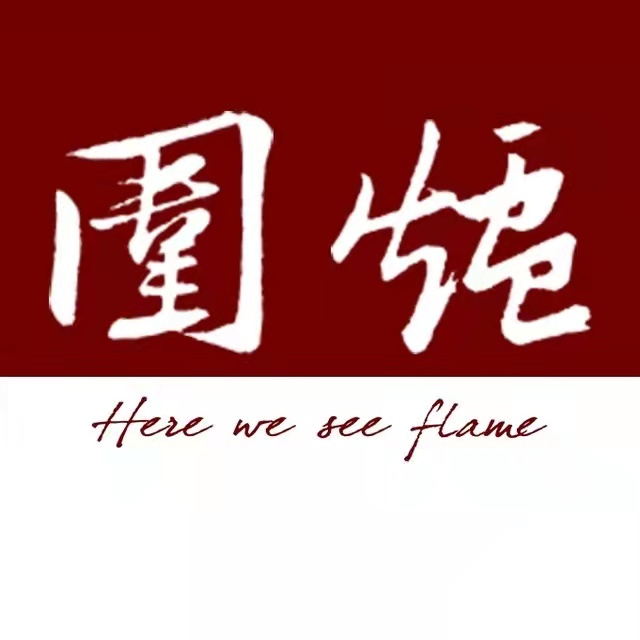
Like my work? Don't forget to support and clap, let me know that you are with me on the road of creation. Keep this enthusiasm together!

- Author
- More